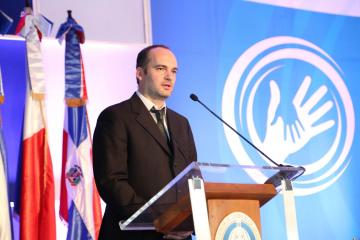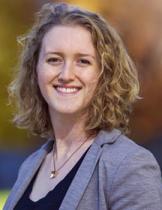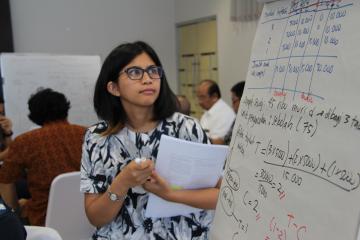
Francisca de Iruarrizaga, J-PAL ‘13, on reforming Chile’s child welfare system
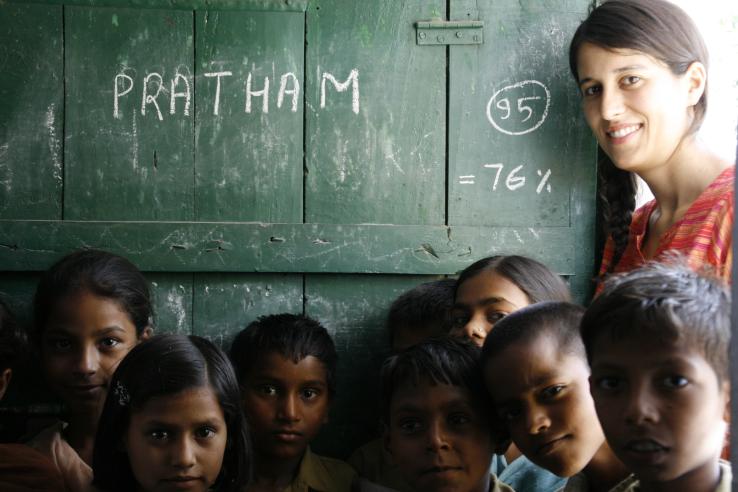
The Alumni Spotlight series highlights J-PAL alumni who are making an impact across industries and around the world. To nominate a J-PAL alum to be featured in a future Alumni Spotlight, please fill out this form.
Francisca de Iruarrizaga is a former policy and training manager at J-PAL LAC, where she worked to increase the use of evidence in Latin American policymaking and train policymakers in evidence generation and use. Formerly of the Chilean Ministry of Social Development prior to J-PAL, Francisca returned to work with the Government of Chile in 2018 to design and implement a sweeping set of measures to reform child welfare services. She shares her experience working both in and with the governments of Chile and Peru to drive evidence use in reforming social policy.
What drew you to focus on public policy and child welfare? Tell us a bit about your background and what you were looking for in a career.
It’s been a series of small decisions that led me to what I do now. In school, I often volunteered with disadvantaged communities around Santiago. When I started undergrad, I decided to study economics to get the tools to fight poverty and inequality.
After finishing my degree, I started work at the Ministry of Social Development, focusing on poverty measurement and designing a conditional cash program. But the poverty measurement work, which was the bulk of what I worked on, didn’t quite feel like the right fit for my interests.
I went through the process of thinking, if I want to reduce poverty and inequality, where should I focus? Everything I was doing then felt as though it were coming too late to make a change in people’s lives. It became clear to me that I wanted to focus on early childhood development, and particularly on child welfare, as what happens early on in the lives of children can have permanent consequences.
It’s also an area dominated by psychologists and lawyers, where there has been relatively little involvement from economists. I think there is a lot we can contribute in this space, but at least in Chile, this isn’t widely understood yet.
There have been many times in my career when people didn’t get why I, as an economist, study child development. For example, I interviewed many different organizations when writing my MPAID thesis on reforming the child welfare system in Chile. The people I spoke with always expected me to ask about their finances, and were very surprised when I told them I wanted to learn about how they worked with the kids.
How did you first learn about J-PAL?
I first heard about J-PAL through working with the former Minister of Planning in Chile, who had just finished his PhD in economics. He created Comisión Brújula, a joint academic-government commission organized with J-PAL to identify critical issues where we don’t have enough evidence and form a research fund to produce more. J-PAL had just opened an office in Chile and thought it sounded like an exciting opportunity to go deeper into this kind of work.
What were some of the most interesting things you worked on as a policy and training manager at J-PAL LAC?
I had a dual role in policy and training. I was really passionate about the policy side, where I worked to join the worlds of academia and policymaking, and I learned a lot about training. I ran a number of executive education courses on evaluating social programs in Peru, Brazil, and a personal favorite in Washington, DC with the Inter-American Development Bank and government officials from across Latin America. It was fascinating to teach J-PAL methods to policymakers around Latin America, each of whom brought their own practical experiences to the class.
I was also involved in the early stages of a very fruitful partnership with the Government of Peru. The Ministry of Finance, the Ministry of Social Development, and some professors from universities in Peru were involved, and we initiated the same process as Comisión Brújula in Chile. This entailed identifying the key questions where more evidence is needed, and conducting more research to answer them.
You have since returned to work in Chile’s government, where you are an advisor to the President on topics of early childhood development. What are some of the most engaging elements of your role now?
I was invited to help build a government program while I was working at the Pontificia Universidad Católica.
When Sebastián Piñera began his presidency of Chile in 2018, one of his key policy focus areas was “putting children first.” He brought together politicians, NGOs, and more to craft a new national plan to improve the lives of children in Chile, especially the ones suffering rights violations.
This big national agreement had three areas: Promoting child development to help each child reach their potential, intervening in the lives of at-risk children, and protection and rights restitution for children whose rights have been violated
At first, I was involved in the discussion and writing of the national plan. After that, my role has been to coordinate and help the implementation of the 94 agreed upon measures. Each ministry is in charge of implementing different measures, and my task is to help with coordination between the ministries, as many of the measures are interdependent.
I’m very satisfied that we’ve accomplished about 70 percent of our measures. We have a new institution for child protection, better trained child welfare professionals, better program design, and so on now, but there is still a long way to go to create lasting improvements the lives of children. We had twelve laws to approve, and half of them are still in Congress. Things that may appear simple on the outside take a lot of time for the government to work through.
How have you stayed connected to J-PAL in your work?
I have stayed very connected to J-PAL. When I was teaching at the university after my Master’s, I was invited to be a part of a project with the government of Peru focused on improving the programs run through the Ministry of Women and Vulnerable Populations. It was a great experience—we did a research project and then presented it to the government.
I also teach an undergraduate course on social program evaluation—it’s like J-PAL for undergraduates. I’ve co-taught it with a J-PAL affiliate and another J-PAL alum for over five years now! I love watching undergrads in the class have the same eye-opening experience I felt when discovering the impact economics can have in the lives of the most vulnerable people.
Related Content

Andrea Adhi, J-PAL ’19, on using interdisciplinary research to support Indonesia’s most vulnerable during Covid-19
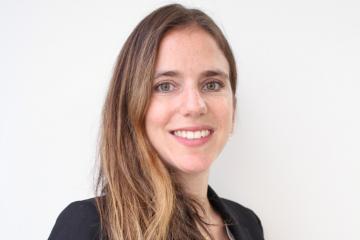
Amanda Dawes Ibáñez, J-PAL ‘14, is at the nexus of research and policy design
